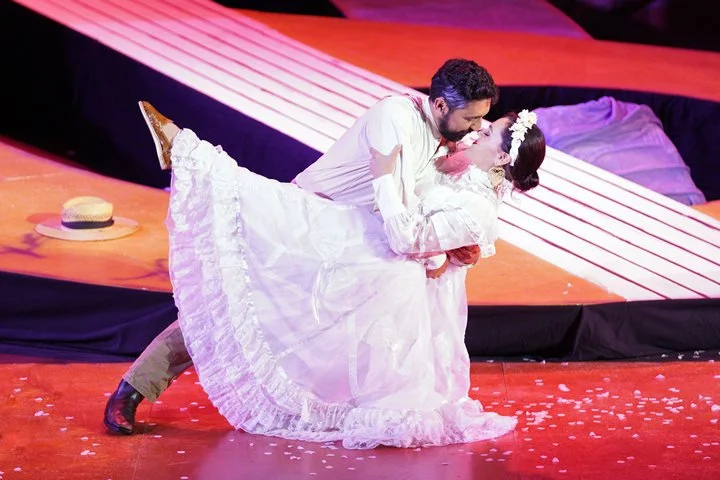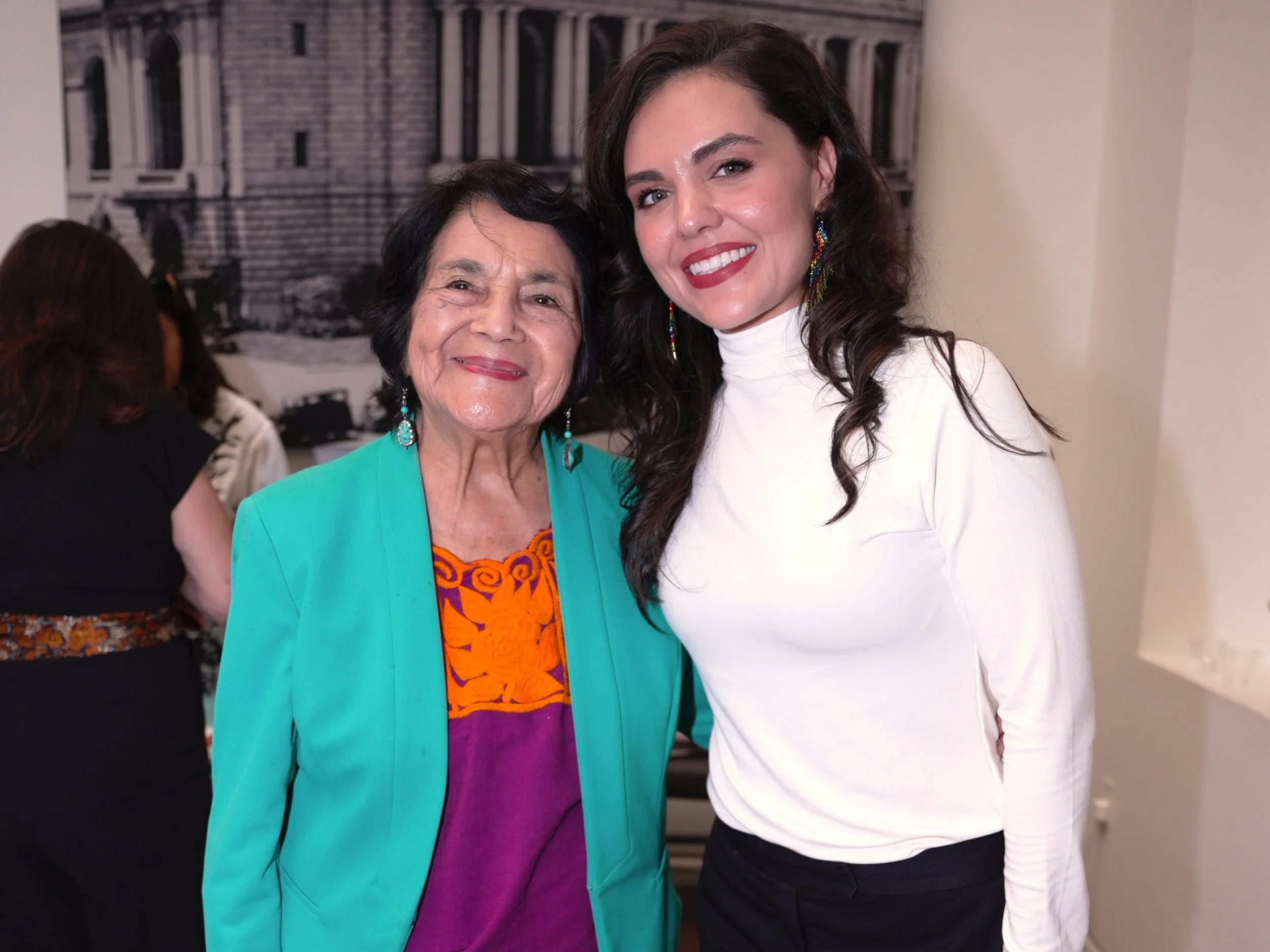5 Questions with Kelly Guerra on Becoming Dolores
1. You’ve performed everywhere from the Metropolitan Opera to mariachi operas and world premieres—how do you stay grounded as you navigate such a wide range of musical styles and characters?
The wide variety of musical styles and characters is the great joy of my career. As much as I admire those who specialize in bel canto or early music, I personally want to be able to sing a little bit of everything! Technique is technique- and chances are that if you can sing opera well, you can probably learn to sing in other styles fairly well. Opera is my first love, but I am a huge musical theater, jazz, salsa, and rock fan. I’m hungry for all of it and want to sing it all! I would argue that because I am constantly switching musical styles, I feel more grounded than I would being a specialist.
The way I stay honest is in the integrity of the “work.” As performers, we must have respect for the text, the score, and for our intuition. No matter what the genre is, I have to research it, practice it, and deliver my best performance every time.
What I love about Dolores is that the opera has these beautiful romantic vocal lines at times and at others a minimalist texture, all while being aurally gorgeous yet rhythmically and harmonically complex. Nicolas’ music really appeals to my diverse taste in music.
2. As a first-generation American and proud Peruvian American artist, how has your heritage and upbringing shaped your path in opera?
I spoke Spanish at home and English at school, so I always felt a little different than a lot of my peers in my mostly white hometown. I finally felt “at home” with my peers when I got to sing in choir and in musicals. I had found “my people,” and it didn’t matter where we were from. We were all music and theater nerds!
I feel very lucky to have grown up in a home that was very vibrant, my mother was always listening to music from several countries: Peru, Colombia, Egypt, Lebanon, Spain… I feel like my ear and my taste is very much because of her. I think that’s why I’m often cast in “crossover” operas, such as Ainadamar, María de Buenos Aires, and Cruzar la Cara de la Luna: I have an aptitude for several styles, and I have my dance-party-loving family to thank.
3. You champion Spanish-language repertoire—why is it important to you to center those works, and what role do you think they play in shaping the future of opera?
I have been very lucky to develop my career during a time where diversity and inclusion has been more important than ever. According to the 2023 Census, the Hispanic population of the United States is 19.5% of the total population, making it the largest ethnic minority, ⅕ of the population. Audiences had been asking for more diversity in programming and casting which has deepened the variety of the repertoire in the circuit. The United States is not going to become less diverse, no matter what any politicians might hope for.
On a personal note, I don’t come from an opera or classical music loving family, but experiencing operas in Spanish has made my mother an opera fan in every language. I think that is possible for many new opera goers! We must call in the audience.
4. As artists we often play roles that are created from someone’s imagination. What is it like to play a living icon Dolores Huerta, who continues to have an impact on society today?
I have been lucky enough to play some incredible roles, including Justice Ruth Bader Ginsburg in Scalia/Ginsburg. I was absolutely terrified to do a good job. And guess what? I am just as scared, if not more, performing as the title role in Dolores. Dolores Huerta is an American hero. She is an actual living legend who has saved hundreds if not thousands of lives. She has put herself on the line time and time again to make conditions better for her fellow human beings. I admire her deeply and feel extremely honored to have been chosen for this project. Her work inspires me to be a better person in my community and a better performer, too. I love learning new things about her advocacy and getting to highlight a significant chapter in her life through the opera.
The portrait Nicolás and Marella have painted of Dolores through the creation of this opera is beautiful and poignant. How lucky we are to have this piece and these people!
5. You had the chance to meet and speak with Dolores Huerta herself. What was that experience like and what things have you taken from that and brought into your performance?
I thought that I was going to pass out when I met her because I was so nervous. This woman who has accomplished so much in her lifetime, shaking hands with me, a musician! She inspires me so deeply and she inspires me to be better. She has this infectious energy and joy that I was so thrilled to be around. When she gave a speech before the workshop presentation, she was electrifying.
I have been working on tapping into the joy that she exudes. It’s not trite. Her joy is genuine happiness of someone who lives by her values.




